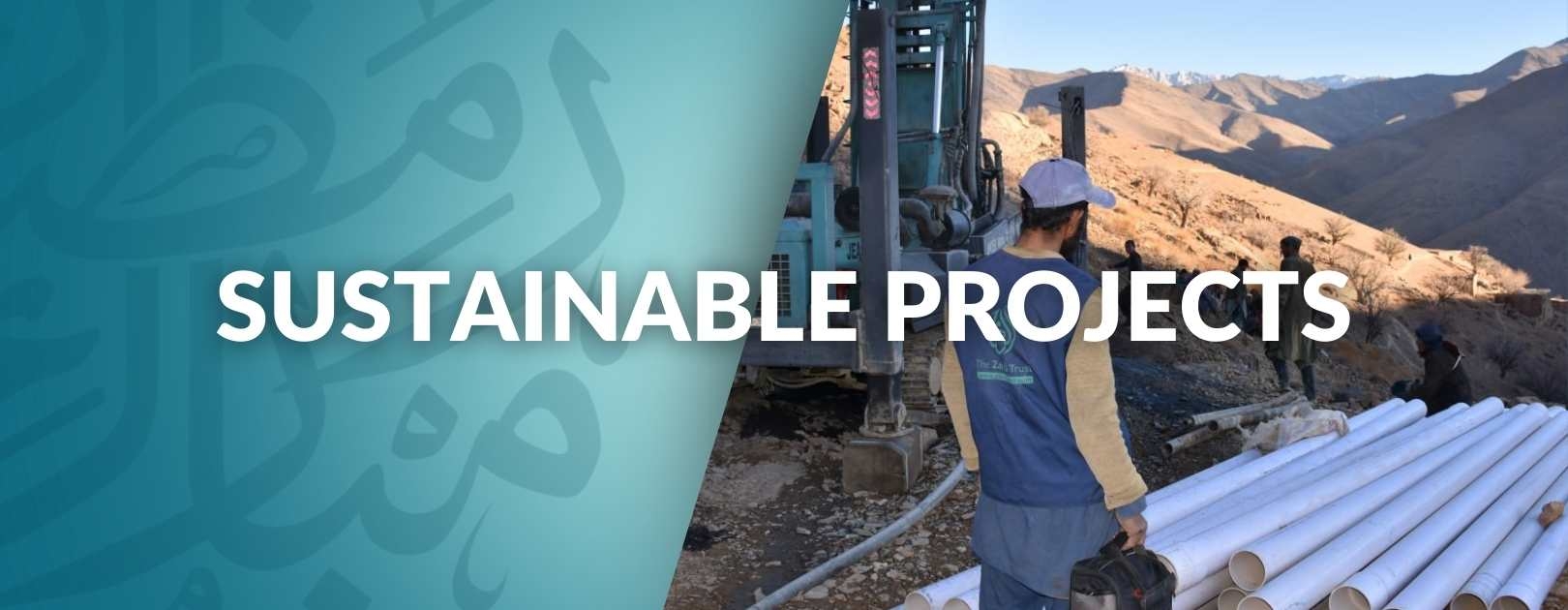This year, The Zahra(s) Trust Canada is focusing on providing aid through sustainable projects. Through our new campaign, we aim to allow communities to be self-sustainable and break out of the cycle of poverty.
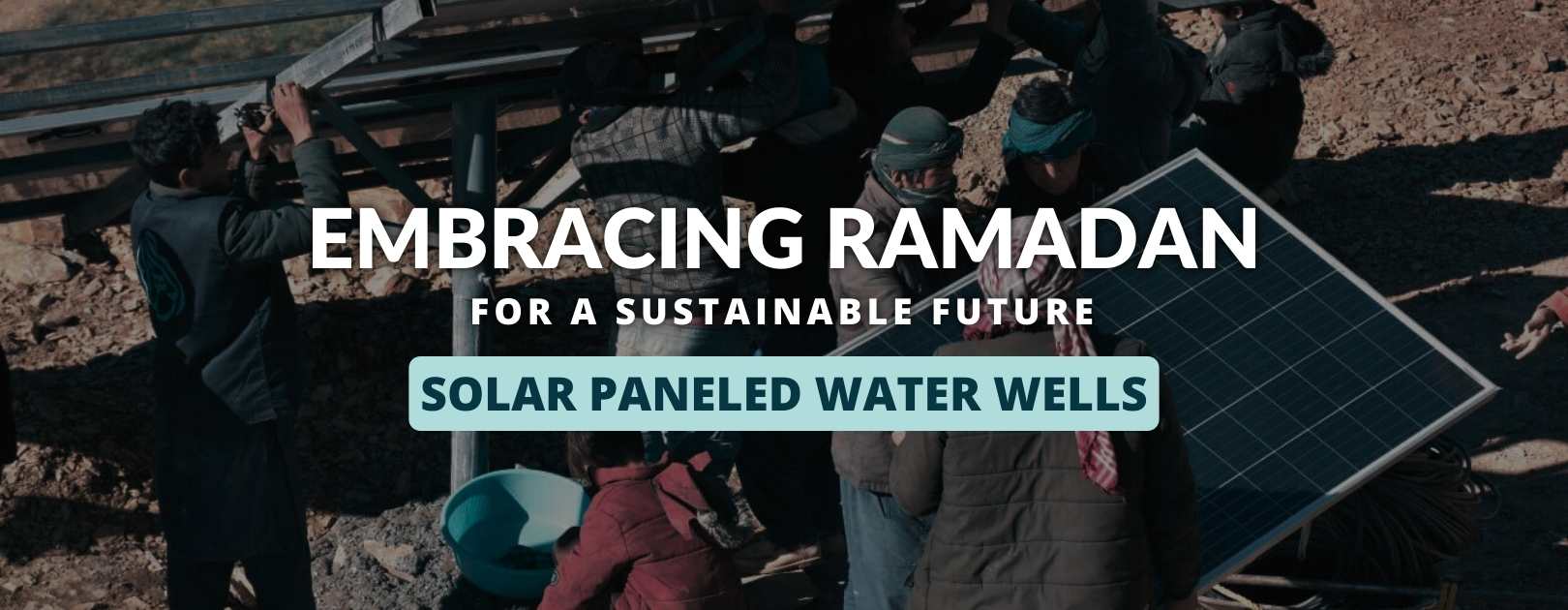
Solar Paneled Water Wells:
Solar-panelled water wells are a crucial investment in sustainable development and global well-being. These water wells harness the power of solar energy to pump and distribute clean water, addressing the pressing issue of water scarcity in our areas of operation. Together, we can create self-sufficient and environmentally friendly water sources, ensuring that communities have access to a reliable and renewable water supply.
Beyond immediate health benefits, solar-powered water wells also create economic growth by freeing up time spent fetching water and enabling communities to focus on education, agriculture, and other income-generating activities. By donating to these water wells, we can enhance the quality of life for vulnerable populations while promoting a more sustainable and resilient future for the planet.
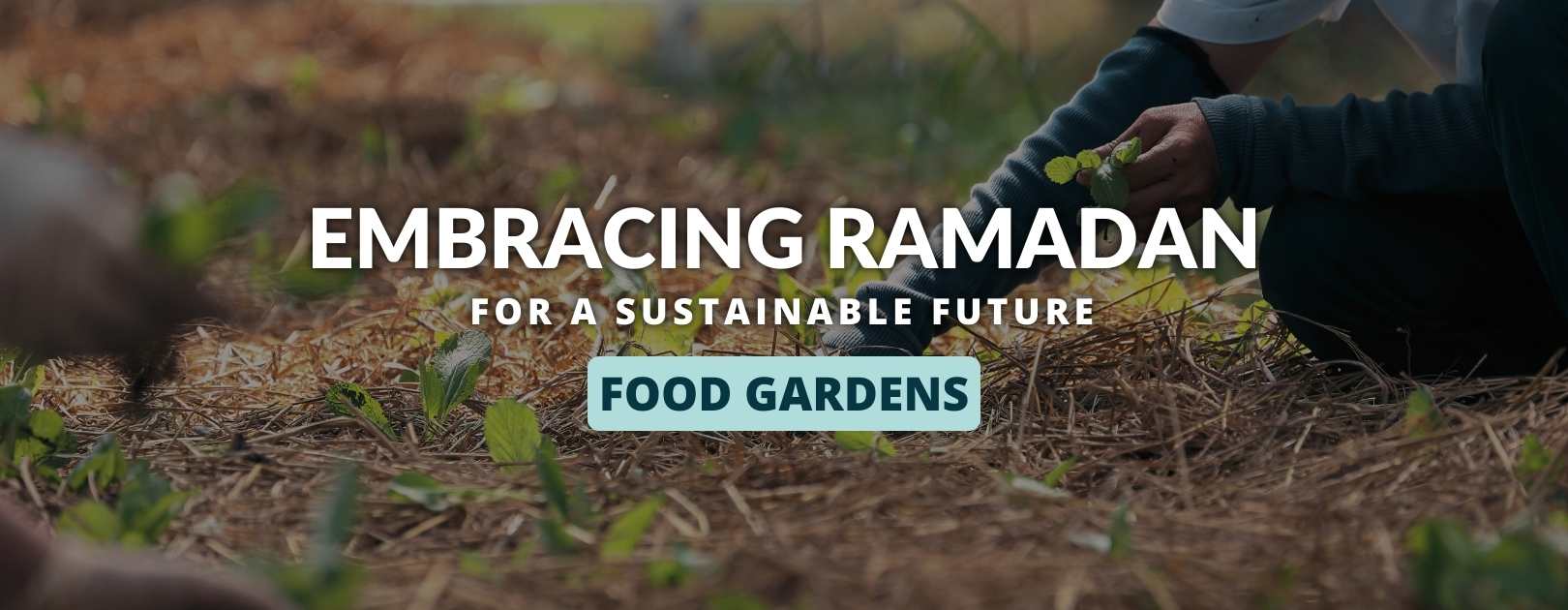
Food Gardens:
Donating money towards food gardens is a significant way to support our campaign for a sustainable Ramadan. Food gardens and allotments help to create self-sufficiency and sustainability for vulnerable families. These initiatives also empower families to cultivate crops not only for personal consumption but also for sale, creating a dual impact on their economic well-being. Together, we can enable communities to break the cycle of dependency, offering a sustainable solution to food insecurity.
These gardens promote environmental sustainability, encouraging organic and locally sourced agriculture. The knowledge and skills gained through tending to these plots can empower individuals, creating a sense of pride and community engagement. Supporting food gardens for vulnerable families becomes an investment in long-term resilience, ensuring that communities can not only feed themselves but also thrive economically in a sustainable and environmentally conscious manner.
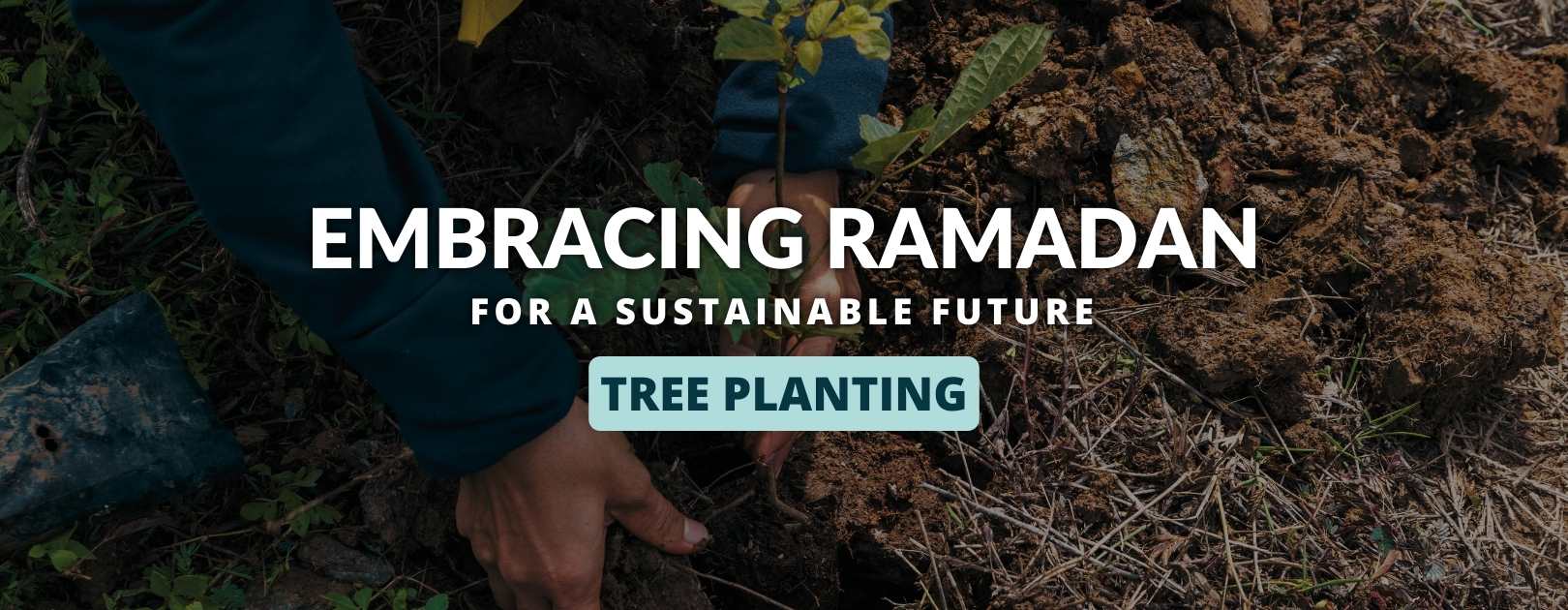
Olive Tree Planting:
We are encouraging donors to contribute to the planting of olive trees in the south of Lebanon, where conflict has resulted in the destruction of these vital groves. The planting of trees creates a meaningful impact on both the environment and the livelihoods of affected communities. Olive trees, deeply intertwined with the region’s cultural and economic fabric, offer a sustainable solution for restoration. By supporting replanting efforts, donors aid in mitigating environmental damage and combating desertification, building a more resilient ecosystem.
The olive industry not only provides a source of income through olive oil production but also represents a symbol of resilience and continuity in the face of adversity. Donor support in this context is not merely about planting trees; it’s about revitalizing communities, restoring economic foundations, and contributing to a sustainable and harmonious future for the people of southern Lebanon.
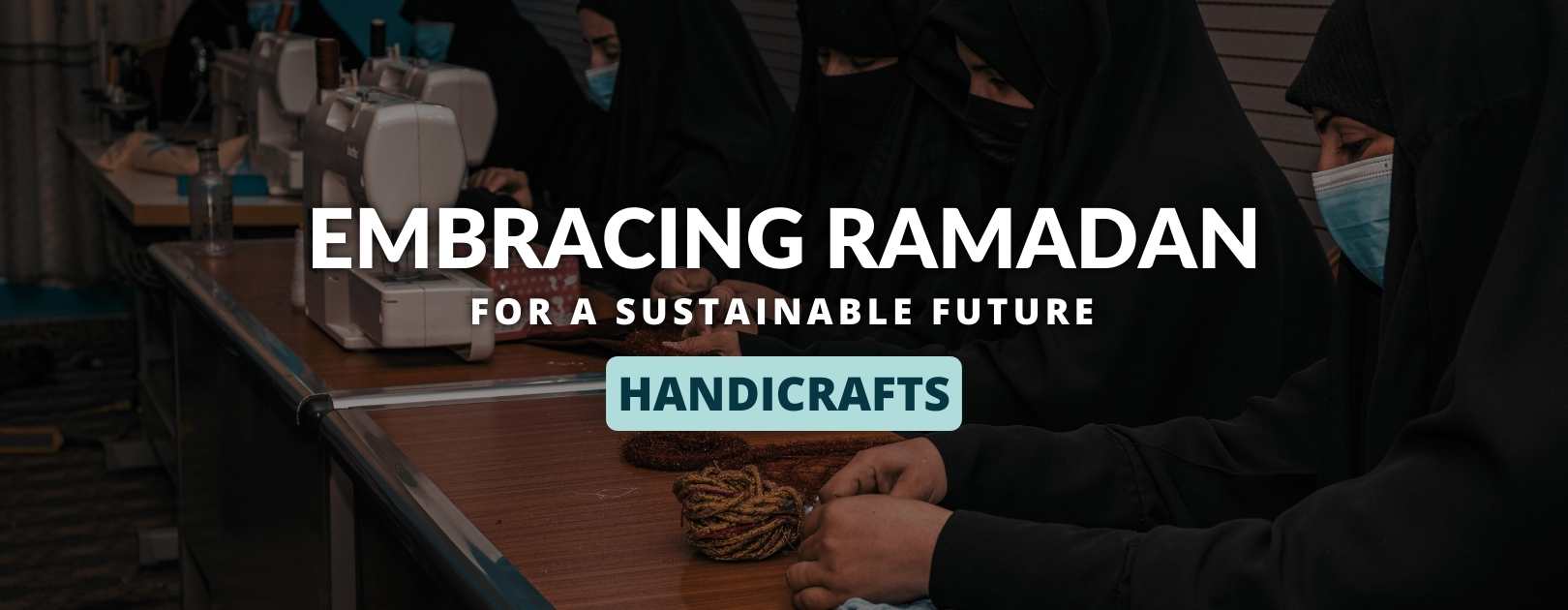
Artisanal Handicrafts:
We are looking to enable women to acquire valuable skills in sewing, embroidery, and weaving, providing them with a sustainable means of income. Learning various crafts not only equips these women with marketable skills but also encourages entrepreneurship, as they can potentially establish their own businesses or contribute to existing ones.
The economic independence gained through diverse handicraft projects in both Iraq and Afghanistan not only improves the financial well-being of these women but also enhances their self-esteem and social standing within their communities. We believe this is an impactful way to promote gender equality and alleviate poverty among vulnerable women in Iraq and Afghanistan.
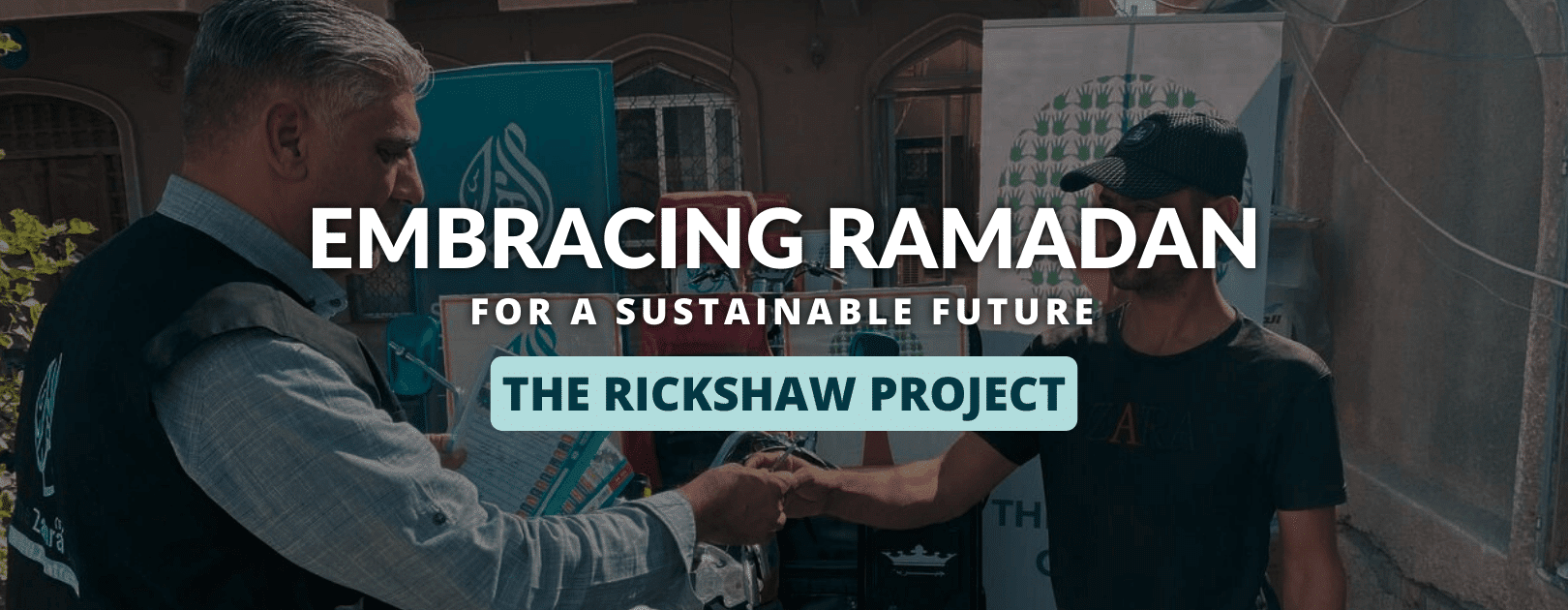
The Rickshaw Project:
Through this microfinance program, we purchase rickshaws and distribute them to individuals who can use them as a source of income to support their families. Our beneficiaries then make monthly repayments over a 15-month period, at which point they become the full owners of the rickshaw. The repayments are then reinvested back into the program to help support additional families in need, particularly orphan-led households.
We believe that this microfinance scheme will have a positive and sustainable impact on the community by providing individuals with a pathway to economic independence and stability.
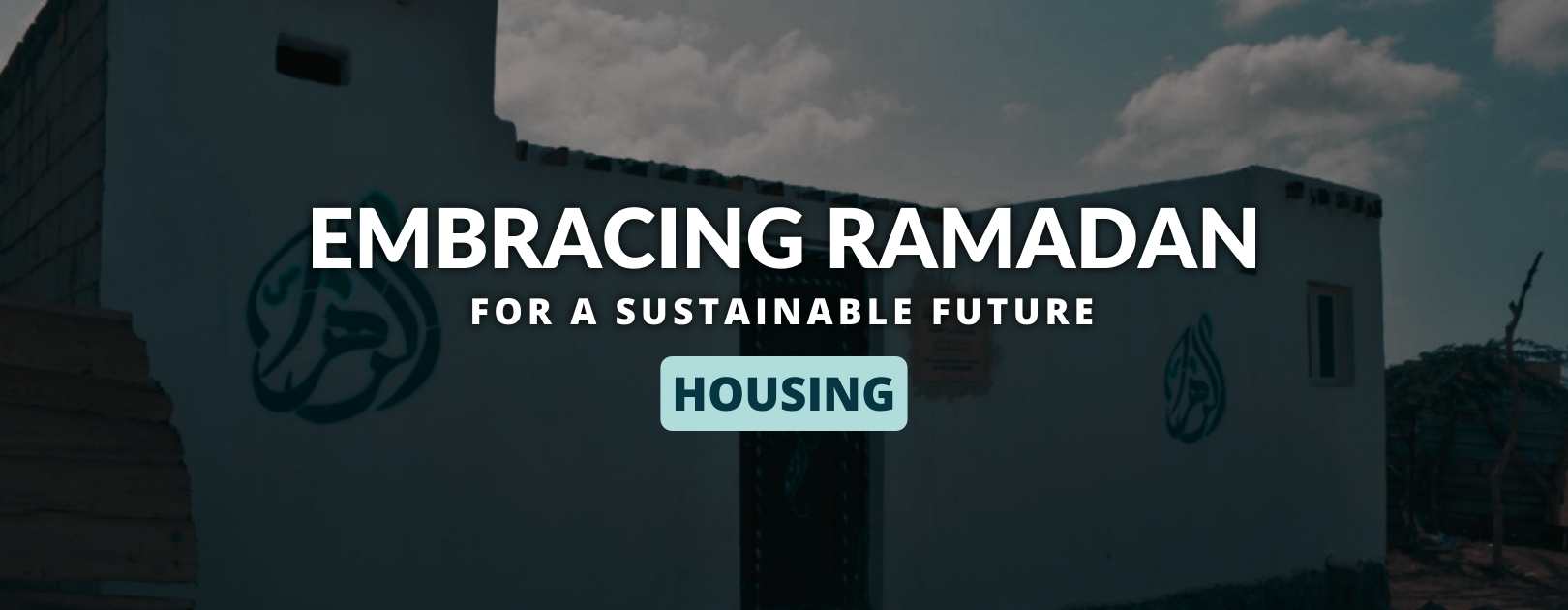
Housing:
Supporting housing construction for displaced and vulnerable families is a humanitarian imperative that goes beyond the bricks and mortar. It is an investment in rebuilding lives shattered by displacement, conflict, or crises. Adequate housing is not just a physical space; it’s a sanctuary that restores a sense of security, stability, and normalcy for families grappling with adversity. One of the most fundamental human needs is shelter.
This support not only provides a tangible solution to homelessness but also contributes to the mental and emotional well-being of individuals who have experienced upheaval. Stable housing creates a sustainable platform for families to regain a foothold in society and rebuild their lives.



